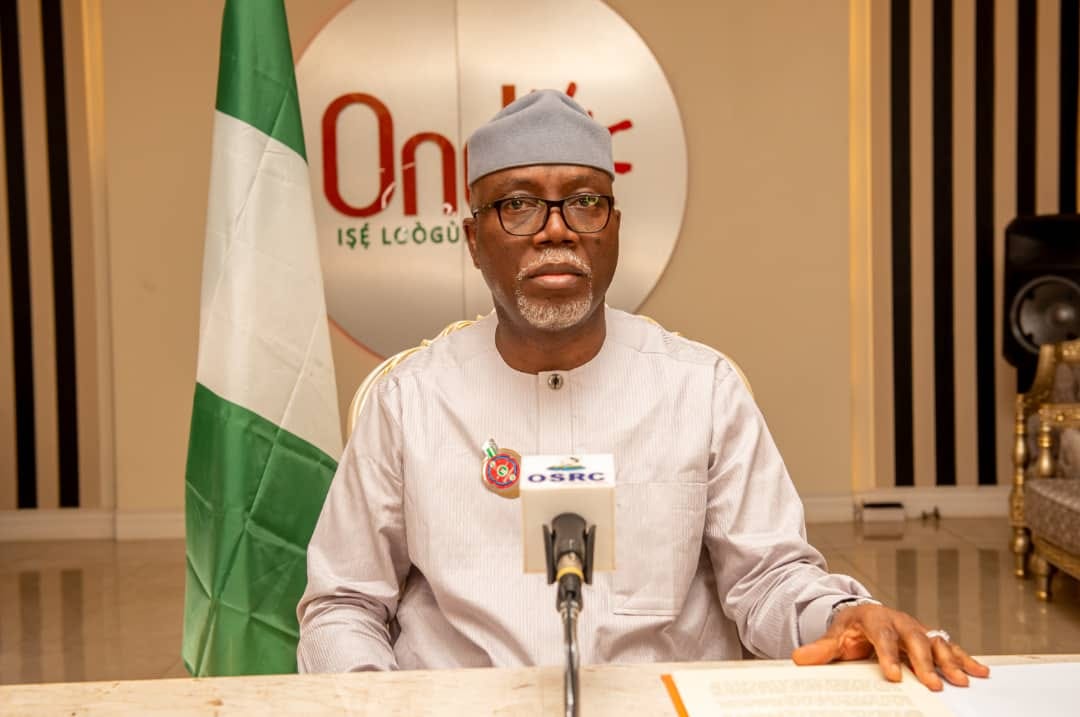The internal crisis rocking the Labour Party (LP) is yet to abate despite the recognition of Julius Abure as the National Chairman of the party by the Independent National Electoral Commission.
The factionalisation in the party was intensified following the removal of Abure by the party leaders.
Trouble resurfaced in the party after a meeting was facilitated by Peter Obi, Presidential candidate of the party in the 2023 general elections, and Alex Otti, Abia State Governor, at the Government House, Umuahia.
Tagged: LP’s NEC/ extended Stakeholders’ meeting, Abure avoided the gathering.
However, Nigeria’s former finance minister, Nenadi Usman, emerged at the meeting as the chairperson of the Labour Party Caretaker Committee.
The emergence of the caretaker committee consequently ended Abure’s and others’ reign as party executives.
The 29-member committee was mandated to organise ward, local government, state congresses and national convention of the party within 90 days.
Dissociating himself from the meeting. Obiora Ifoh, the spokesperson of the Abure-led factional executives, declared the outcome of the Umuahia meeting as “illegal.”
Abure, who had declared Obi as the LP flag bearer for the forthcoming presidential election recounted, announcing that the party’s presidential ticket for the 2027 general election is now open to all qualified Nigerians to contest.
After holding its factional national executive committee meeting in Abuja, the embattled national chairman disclosed that the names of Alex Otti and Peter Obi had been deleted from the list of people contesting for party tickets.
“The more the merrier: The more people (aspirants) we have, the better for the party and even the candidates themselves because if they emerge from a competitive process, it gives more confidence and shows you are the best,” Abure had declared.
However, Obi explained that Abure was removed by the party’s constitution, as his tenure elapsed, clarifying that Abure was not removed by any governor.
Obi, who was represented by his 2023 running mate, Datti Baba-Ahmed, gave the clarification at the inaugural meeting of the LP caretaker committee held in Abuja recently.
He appealed to Abure and his supporters to sheathe their swords and join hands with the caretaker committee to rebuild the party.
Meanwhile, more trouble visited the party after a Federal High Court sitting in Abuja affirmed Abure as the substantive National Chairman of LP.
The court had declared the 2024 Labour Party national convention held in Nnewi, which reelected Abure, valid, stating that the convention was in line with all laid-down laws in Nigeria.
But, the Independent National Electoral Commission has recognised Abure’s leadership of LP following the court order compelling it to do so.
INEC’s recognition was contained in a letter addressed to Abure and the National Secretary of the Labour Party, Alhaji Umar Farouk Ibrahim, by the Secretary of the Commission, Rose Oriaran- Anthony, inviting the Labour Party to the fourth consultative meeting with the political parties.
After the meeting with INEC, Ibrahim said though the party was unjustly excluded from previous engagements, he was satisfied that INEC has obeyed the court order and that the party has now resumed its seat amongst the other 18 political parties.
He extended hands of fellowship to all aggrieved chieftains, urging them to rally behind LP ahead of the forthcoming Anambra State Governorship election as announced by the electoral umpire.
Reacting, Obi stated that he had met with Governor Otti along with the Caretaker Chairman and Secretary of the Labour Party.
In a post on his X handle, the former governor of Anambra State said the goal is to emerge stronger and more unified, standing together as one united front.
The politician urged all members of the Labour Party to remain calm and patient as they continue to engage in discussions and consultations.
He said: “Governor Alex Otti and I, along with the Caretaker Chairman and Secretary of the Labour Party, convened to discuss and review recent developments, including the judgment delivered by an Abuja High Court on the same day.
“I urge all members of the Labour Party to remain calm and patient as we continue to engage in discussions and consultations.
“Our goal is to emerge stronger and more unified, standing together as one united front. We must not allow this to divert us from addressing the pressing issues affecting our people today.
“We have always known that the task of creating a new Nigeria that is possible will not come without challenges.”
The fate of the party in future elections hangs in the balance as Obi’s faction is yet to accept Abure’s Hands of fellowship.


 Naira4 weeks ago
Naira4 weeks ago
 News3 weeks ago
News3 weeks ago
 Education4 weeks ago
Education4 weeks ago
 Social Media4 weeks ago
Social Media4 weeks ago
 Technology4 weeks ago
Technology4 weeks ago
 Dividends4 weeks ago
Dividends4 weeks ago
 Investment4 weeks ago
Investment4 weeks ago
 Economy4 weeks ago
Economy4 weeks ago


























